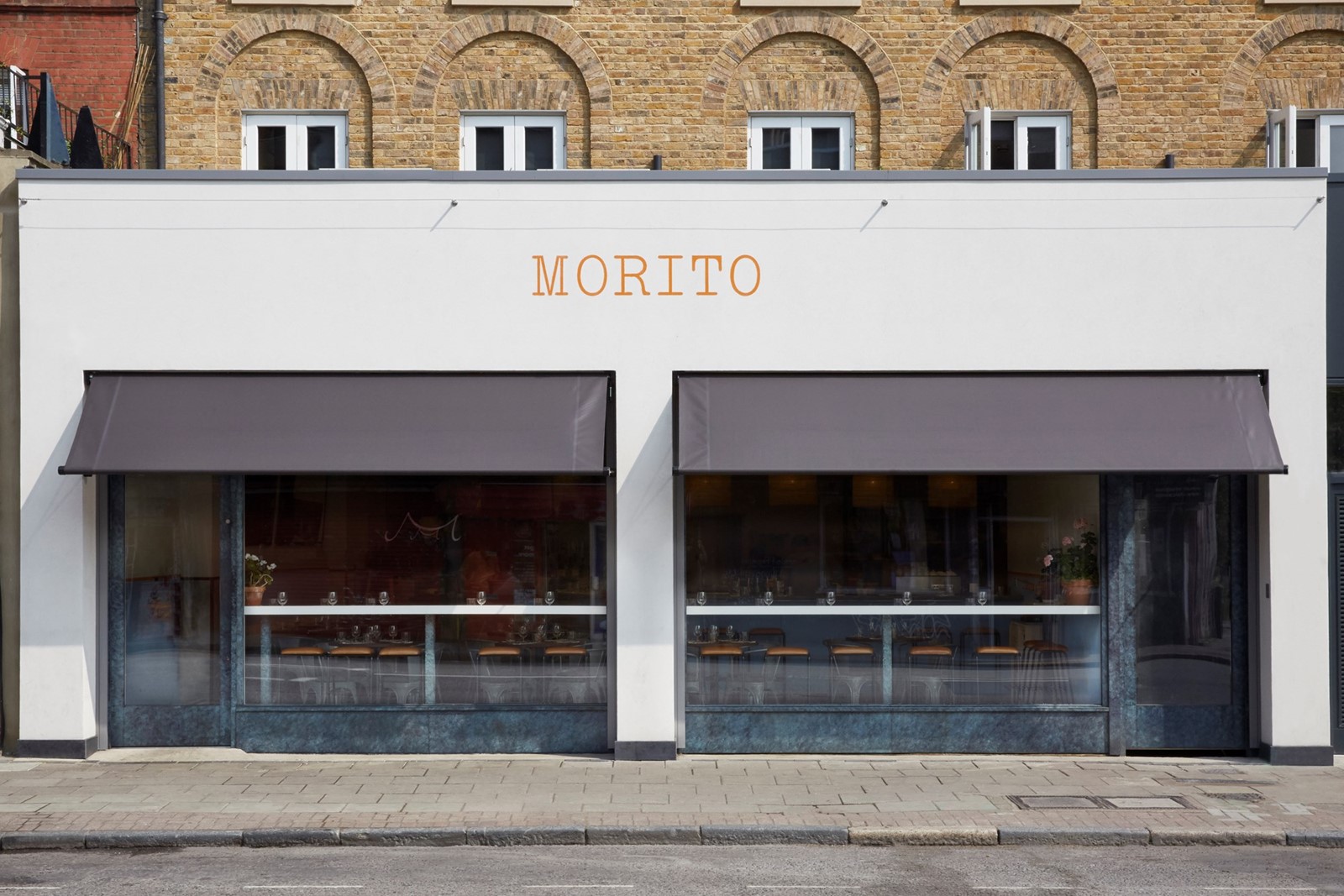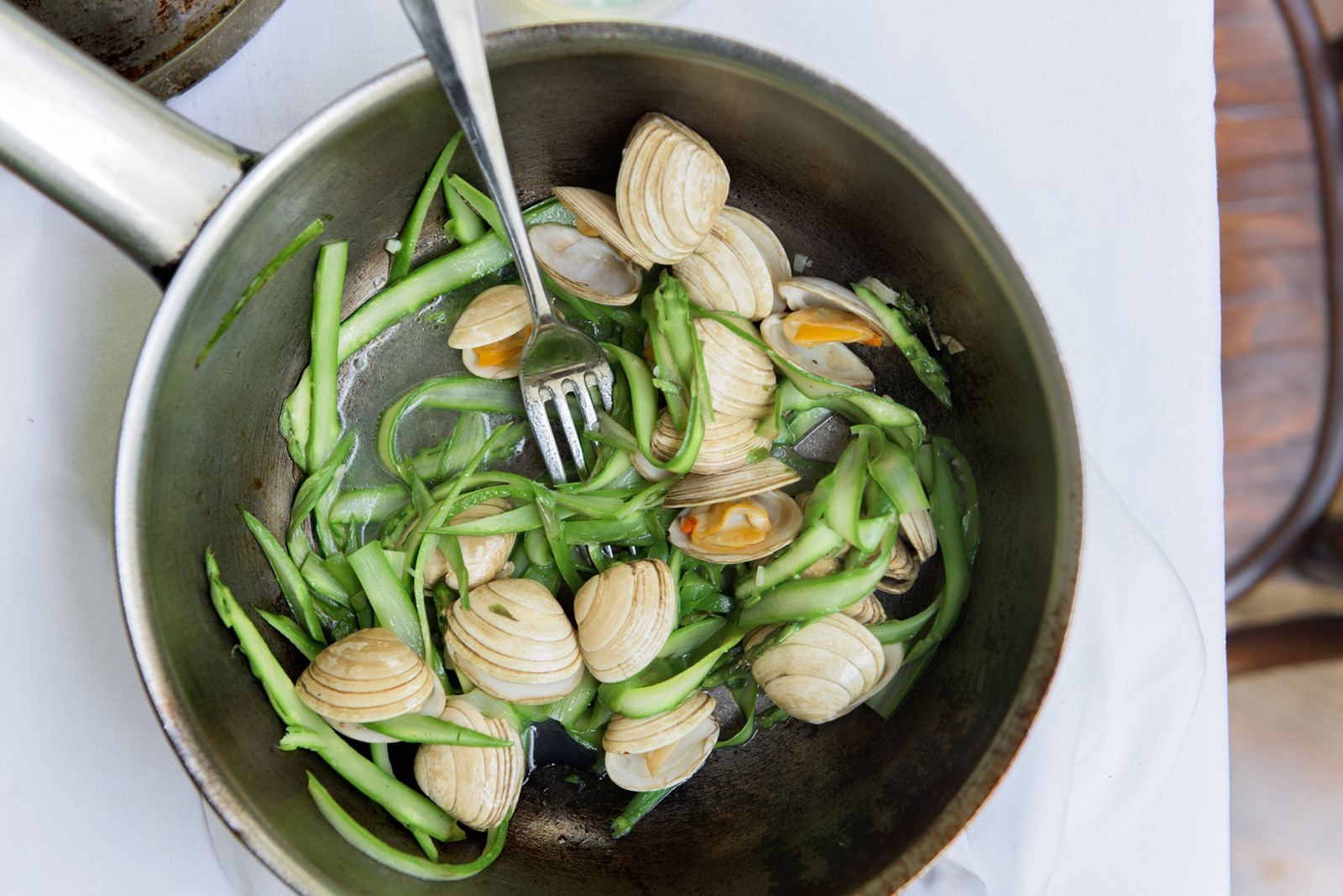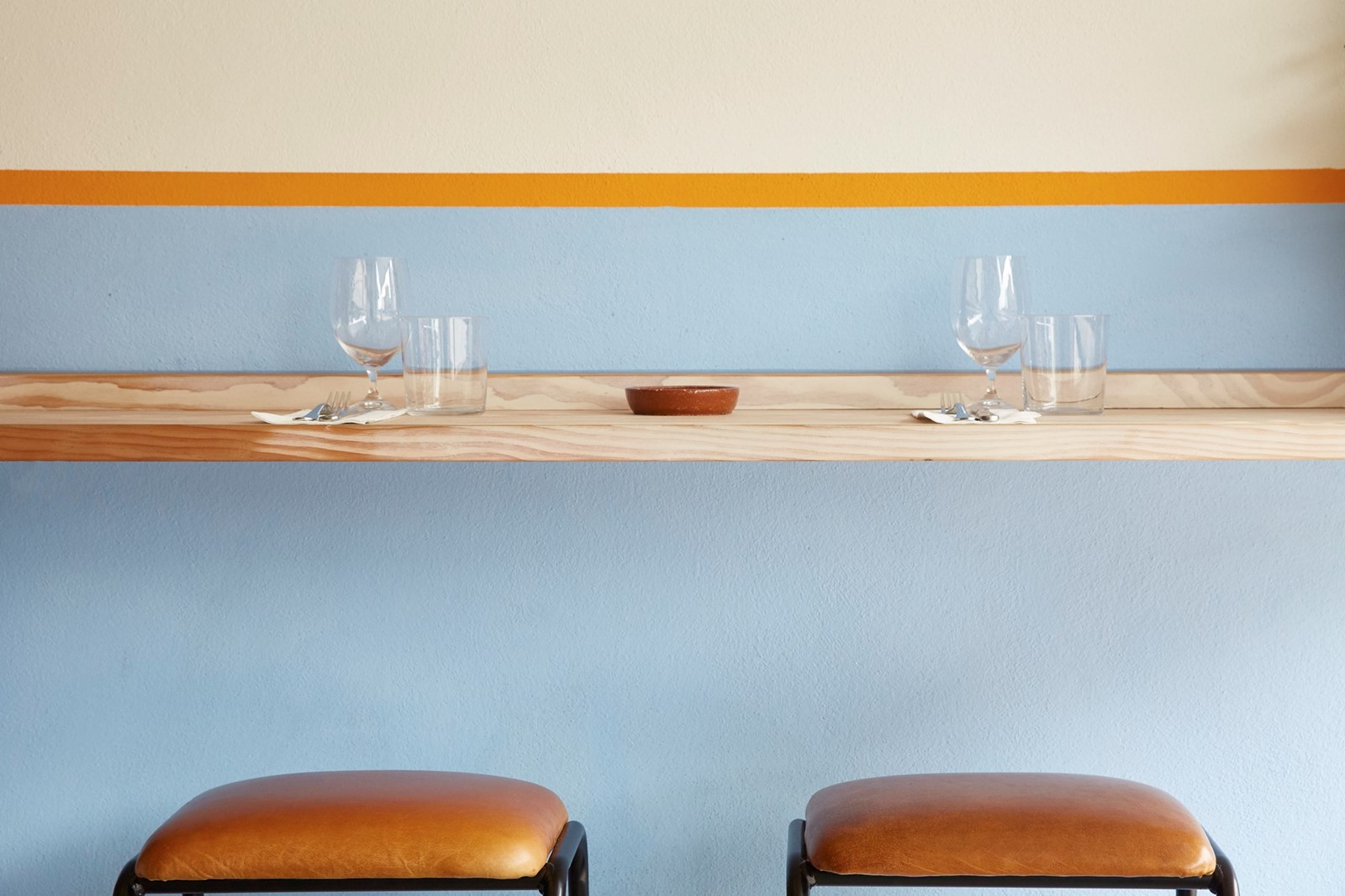Morito Hackney Road, the newest of the adored Moro brood, might be decked out in cool Mediterranean hues but it’s impossible not to feel warm on meeting its head chef, Marianna Leivaditaki. A natural storyteller, she radiates hospitality as she recounts growing up in the serene coastal surrounds of Halepa, Crete, before crossing the continent for a career in forensic psychology, jettisoning it for travel, and winding up right back where she started. Not once, but twice. First literally, by returning to the family seafood restaurant, and now figuratively, as at Morito she has kindled the kind of kinship usually reserved for blood relations while serving moreish Cretan fare, as well as plates inspired by the wider Mediterranean and North Africa, as is the Moro-way.
Leivaditaki’s culinary career began before even she can recall. Growing up the daughter of a restaurant-owning fisherman, she was placed on a stool to prep sea creatures, tiny arms swallowed by rubber gloves, as soon as she had the requisite manual dexterity. But far from being a slog, her childhood, and that of her siblings, was nigh on idyllic. “The most important thing was the freedom,” she says. “Playing by the water, hardly ever wearing shoes, going to the restaurant to work a little, then running around being wild. How lucky!” An innate love of cooking saw her wield this independence to gather recipes from local ‘grannies’, dashing around observing and noting down ideas to later replicate for the family. “I'd ask mum, ’Can you give 10000 drachmas? I need to go shopping so I can cook lunch,’” she shares. “Then I’d go off on my bike to the grocery store, light the fire in the kitchen – things little kids shouldn't do – and cook all this stuff I learnt from these old ladies. I was not questioned ever. I turned the kitchen into absolute chaos and mum would simply shake her head.”

It was this determined streak that brought Leivaditaki to the UK, initially to study forensic pathology in Kent where she saved every penny from her part-time job so that she could take the train to London and eat at Moro. “The flavours were familiar, but new. I'd never had anything like it. It was incredible.” Disillusionment with her chosen career soon set in and so she set off on a cycling tour of southern Europe which provided a series of eye-opening epicurean experiences and the chance to sample local produce on a makeshift BBQ. “The aubergines and peppers were out and we could not live without grilling them, so we cycled this massive thing around with us.” After a spell in Ecuador, Leivaditaki headed home to Crete and a two-year stint in sole charge of the family restaurant’s kitchen, where as well as mining Greek food culture, she experimented with knowledge gleaned from hundreds of cookbooks and her travels. And she savoured it, despite the lack of good knives, fellow chefs or space – until it ceased to be a challenge.
“I returned to the UK, went straight to Moro and said ‘Hello, I want a job’.” Thus began a seven-year professional relationship with Samantha and Samuel Clark, the Moro group’s chef-proprietors. “That was first professional kitchen [I’d worked in],” Leivaditaki explains, “and really slowly, through hard work, I became head chef at Moro. It was magic. I've always felt encouraged. Our relationship is great. We feed off each other and help each other grow.” Morito Hackney Road is the culmination of both this partnership and Leivaditaki’s journey, for it gives her the freedom to draw upon her culinary heritage. “I developed menus with Sam at Moro, but it’s nice to bring a part of myself to the equation. Mum and Dad always worked extremely hard, just really trying and it's great to see that all these little pieces were picked up by their daughter and it’s come to this,” she says, before divulging details of ingredients sourced for Morito that go a fair way towards explaining the extraordinary appeal of her small plates. “We fly in beautiful fresh goats cheese and sheeps cheese, butter, Cretan rusks made of flour. I bring honey from a friend over and the Cretan mountain tea that my friend Giorgios forages.” Imported items are supplemented by expertly selected produce from around the UK including, naturally, the freshest fish around. “I've been injured by fish thousands of times in my life, but I just love cooking it.”

At Morito, Leivaditaki is careful to ensure that new customers get to trial instant classics such as fresh goats cheese fritters with Cretan thyme honey and a succulent rabbit dish with light dusting of nostalgia – “those recipes are pure childhood, where you know Granny's cooking rabbit, because you've opened your window and can smell the cinnamon, orange and tomato.” And she also facilitates creativity by bringing in new produce as soon as the seasons allow, this week’s addition: guinea fowl – and refreshes her repertoire via research trips to Crete. “I go and eat at the places I already like and then I hunt around, usually in small villages, to find really good ingredients and new recipes.”
Still, it’s not just produce and skill that keep Morito’s tables full night after night, but also a mutually-respectful and nurturing kitchen environment that draws the best out of the entire team. “Hiring is based on emotion rather than experience and it's worked. I've hired a lot of people who had never been in a professional kitchen before and you go through months of thinking, ‘Why did I do this? And then a year later, they're amazing chefs. For me, that's important as Moro gave me that opportunity and I proved myself. And that's why we've never had titles here. I never say I need a sous chef, it's just, ‘I need a chef,’ and then whoever comes you chat to them. I train my KPs up when they're really good. There's no hierarchy here.” In fact, one could even say that at Morito Leivaditaki has recreated the loving, all hands on deck atmosphere of the bustling Cretan kitchen where she shelled her very first prawn.
